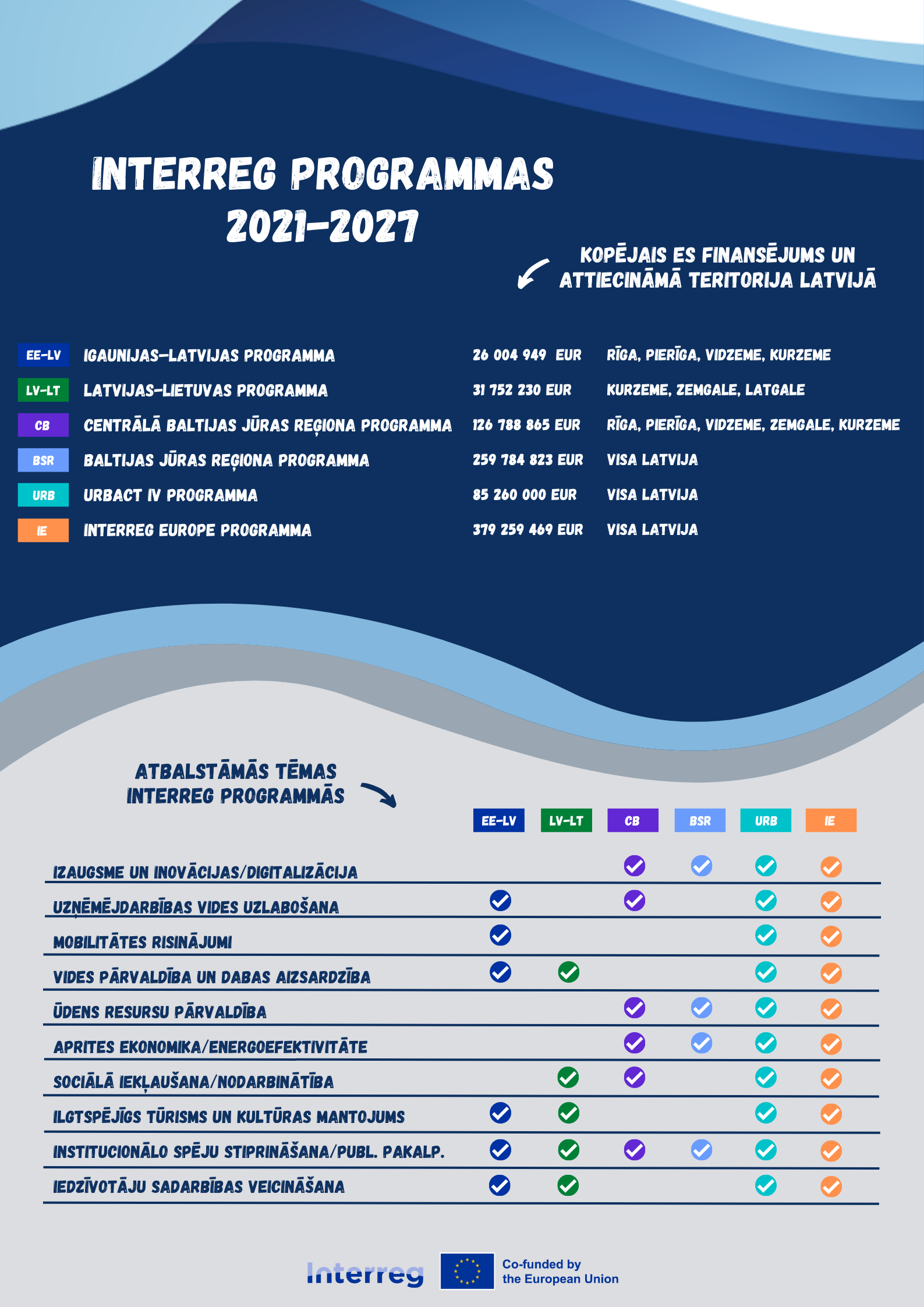About Interreg
“European Territorial Cooperation” known more generally as Interreg, as the objective of European Structural and Investment Funds is an integral part of Cohesion Policy. Five programming periods of Interreg have succeeded each other from 1990 onwards.
European territorial cooperation and, in particular, “cross-border cooperation” contributes substantially to the strengthening of the EU's identity and visibility and integration process of EU Member States, but also creates a culture of cooperation and establish common traditions in the long term perspective.
The overarching objective of European Territorial Cooperation/Interreg is to promote a harmonious economic, social and territorial development of the Union as a whole. It provides a framework for implementation of joint activities (e.g. transfer of experience and knowledge, capacity building, etc.) between national, regional and local partners of different countries, development of common services and joint cross-border investments.
Interreg programmes and projects are addressing common challenges in several countries and exploiting regional potential in specific areas, such as innovation, entrepreneurship, mobility, employment, and social integration, protection of the environment and sustainable urban development, institutional governance, etc. Joint planning and joint investments create common infrastructure and provide common equipment to be used by relevant authorities, operational services and citizens of several countries.
Basic principles for project implementation:
- joint development of a project
- joint management (staff)
- joint funding
- joint implementation
The principle of Lead Partner is an important feature of Interreg programmes. According to this, the project activities are carried out by several partners, one of which acts as a lead Partner by establishing an official link between project partners and the Managing Authority of the programme concerned.
Interreg supports three types of cooperation programmes across Europe and its neighborhood:
- Cross-border cooperation, including cooperation with Non-EU countries;
- Transnational cooperation;
- Interregional cooperation for all EU countries.
During 2007-2013 period Latvia's regions participated in 9 Interreg programmes.
During 2014-2020 period Latvia's regions participated in 9 Interreg programmes.
During 2021-2027 period Latvia's regions participate in 7 Interreg programmes.
NB! The implementation of programmes and projects takes place in English.
Interreg programmes are not managed centrally by the European Commission. In each border region, each transnational programme area, representatives of the national and regional authorities of the countries involved come together with representatives of local authorities and non-governmental organisations and with social partners and define the development priorities of their relevant programmes. Interreg programme is then realized via concrete projects. A decision on selection of projects and programme implementation issues are taken by multi-country Monitoring /Steering Committee of the programme concerned.
The Ministry of Smart Administration and Regional Development of Latvia performs the functions of the National Authority and ensures the development of the policy of European territorial cooperation goal and the coordination of Interreg programmes in Latvia, i.e.:
- by preparing national legislation for the implementation of programmes and projects (link: Legal Frameworks)
- by representing Latvia in meetings of the Monitoring/Steering Committees and decision-making process
- by performing financial control of activities carried out by Latvian project partners (link: Financial Control and Audit)
- by granting co-financing from State budget to project partners from Latvia (link: State co-financing)
- by carrying out publicity and communication activities.
Each Interreg programme has its own Managing Authority, located in one of the participating countries, but working for the benefit of all participating countries. Managing authority ensures the implementation and monitoring of the programme, including:
- design of programme document and procedures for project implementation to be approved by the Monitoring Committee
- signing grant contracts on project implementation
- making payments to projects.
In addition, several Joint Secretariats have been established to support potential project applicants – by providing advice on programme requirements, specific conditions of Call for Proposals, eligibility of partners and thematic relevance of project ideas.
NB! The Joint Secretariats are the main contact points for consultations working directly with project applicants or partners!
Several programmes have Information Points that support project partners in their own region or country by providing more understandable information in national languages.
More information on Interreg programmes can be found on official websites in the section of each programme HERE.
